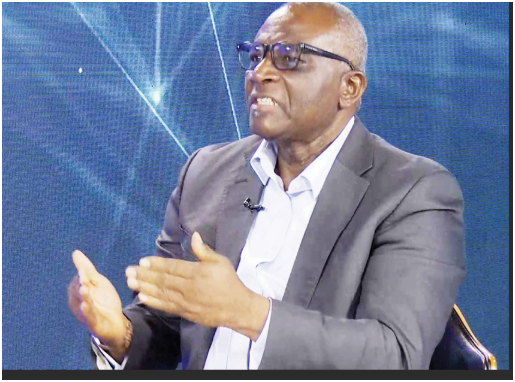No Shame in Debt: Tinubu’s Men Justify Massive Borrowing Amid Backlash
Byline: IDNN Economic Policy & Governance Desk
As the Tinubu administration seeks National Assembly approval for a jaw-dropping ₦34.15 trillion in fresh loans, the Presidency has declared that Nigeria must stop pretending to be rich and accept the hard truth — the country is poor.
Bayo Onanuga, President Tinubu’s Special Adviser on Information and Strategy, dismissed criticisms trailing the new debt request during a media chat in Lagos, describing the borrowing plan as a global economic norm.
“It is not a sin to borrow,” Onanuga said bluntly. “Even the United States and United Kingdom borrow beyond their GDP. The issue is not borrowing — it is what you do with it.”
He pointed out that Nigeria’s current revenue base cannot support national development without additional funding, stressing: “We must stop deceiving ourselves. Nigeria is a poor country with a large population and a small budget.”
Tinubu’s Economic Team Fires Back at Critics
The loan defence comes amid growing public outrage and opposition concerns over Nigeria’s rising debt load. Critics argue that the country is spiraling toward debt distress, but the Presidency insists otherwise.
According to Onanuga, Nigeria’s macroeconomic environment is already improving under Tinubu’s tough reform agenda.
“From forex stability to improved reserves, we’re seeing positive shifts. Our foreign reserves are now $21 billion. The All Share Index doubled from 50,000 to over 110,000. These are signs of progress,” he argued.
He also noted that debt servicing has dropped from 97% of revenue under the previous administration to less than 60%, freeing up capital for social investments.
“We Are in Transition, Not Crisis”

While socio-political critics like Afenifere blast Tinubu’s economic direction as “regressive,” Onanuga insists that what Nigeria is experiencing is not a crisis but a painful, necessary transition to a sustainable economic model.
“There is a paradigm shift happening. We are moving to a market-driven economy. If people are suffering, it’s because we are dismantling unsustainable subsidies and distortions,” he said.
The Tinubu administration has already removed petrol subsidies, floated the naira, and launched public-private partnerships to fund critical infrastructure.
Economic Reality Check
Presidency officials argue that Nigeria’s borrowing is strategic — to fund long-term infrastructure, housing, roads, and innovation through instruments like Infraco, tax credits, and concessional loans.
Still, the public remains wary. The ₦34.15 trillion new loan proposal comes on the back of an existing ₦97 trillion national debt profile, sparking concerns over intergenerational debt burden and shrinking fiscal space.
Yet Onanuga maintained: “The reality is that people are already taking advantage. Exporters are benefiting from the devalued currency. The private sector is adjusting. We just need to keep going.”
